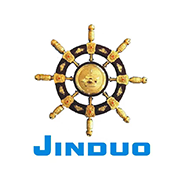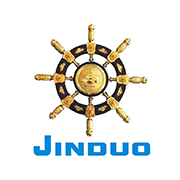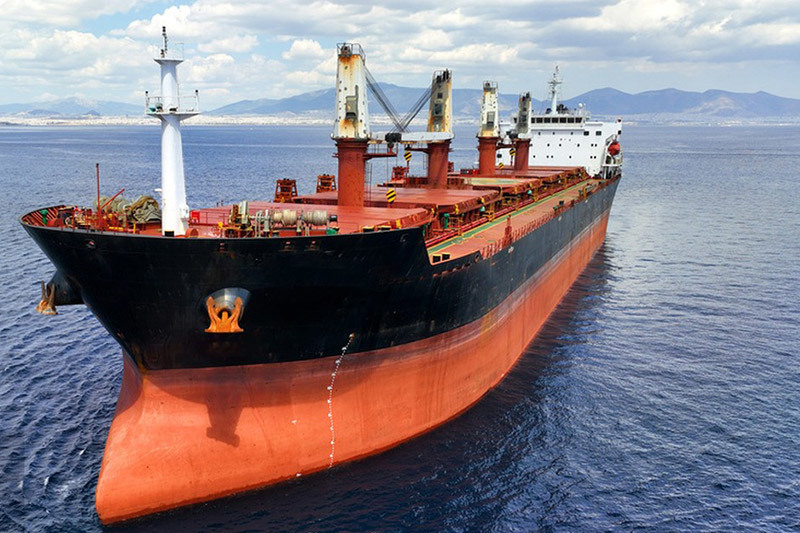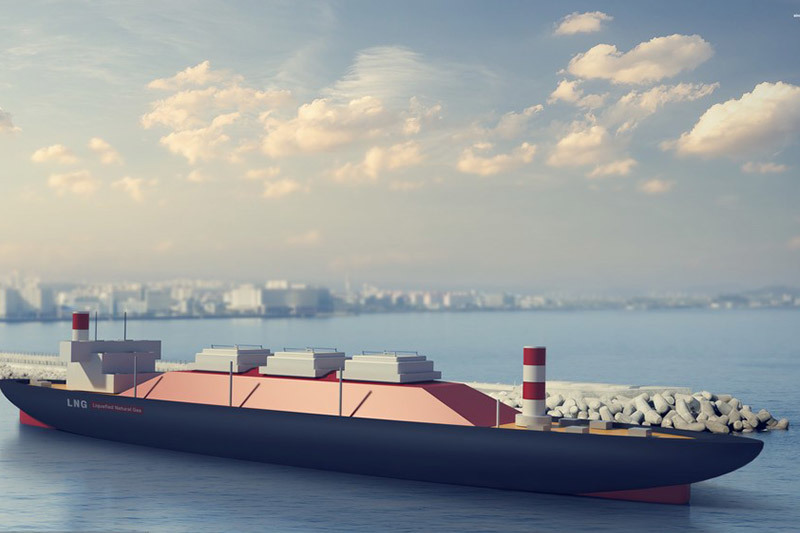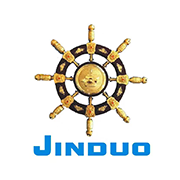news
Key Strategies for Streamlining Ship Operations Management
Key Strategies for Streamlining Ship Operations Management
Table of Contents
- Understanding Ship Operations Management
- The Importance of Streamlined Operations in Shipping
- Key Strategies for Streamlining Ship Operations
- Implementing Advanced Technologies
- Enhancing Crew Training and Management
- Optimizing Routes and Scheduling
- Utilizing Data Analytics for Decision Making
- Fostering a Culture of Safety
- Best Practices for Effective Ship Operations Management
- Common Challenges in Ship Operations Management
- Future Trends in Ship Operations Management
- Frequently Asked Questions
- Conclusion
Understanding Ship Operations Management
Ship operations management involves the systematic planning, coordination, and execution of all activities associated with maritime transport. This includes vessel management, crew management, cargo handling, maintenance, and compliance with regulations. Effective ship operations management is crucial for ensuring that vessels run smoothly, safely, and efficiently.
The Importance of Streamlined Operations in Shipping
Streamlined ship operations are essential for several reasons:
1. **Cost Reduction**: Efficient operations lead to reduced operational costs, including fuel, labor, and maintenance expenses.
2. **Improved Safety**: Streamlining processes helps in minimizing human error and enhancing safety protocols, reducing the risk of accidents and incidents.
3. **Increased Efficiency**: By optimizing operations, shipping companies can improve turnaround times and enhance overall productivity.
4. **Regulatory Compliance**: Effective management ensures compliance with international maritime regulations, avoiding costly fines and sanctions.
Key Strategies for Streamlining Ship Operations
Implementing Advanced Technologies
The maritime industry is witnessing a technological revolution with the adoption of advanced tools and systems:
- **Automation and Robotics**: Automated systems can handle repetitive tasks, such as cargo loading and unloading, freeing human resources for more complex tasks.
- **Internet of Things (IoT)**: IoT devices can monitor vessel conditions in real-time, alerting crews to potential issues before they escalate.
- **Artificial Intelligence (AI)**: AI-driven analytics can enhance decision-making by predicting maintenance needs and optimizing fuel consumption.
Enhancing Crew Training and Management
A well-trained crew is crucial for efficient ship operations. Investing in ongoing training programs can lead to:
- **Skill Enhancement**: Regular training ensures that crew members are adept with the latest technologies and safety protocols.
- **Team Cohesion**: Building a strong team dynamic enhances communication, reducing potential errors during operations.
- **Compliance with Standards**: Training helps crews stay updated on international maritime laws and safety regulations.
Optimizing Routes and Scheduling
Effective route optimization can significantly impact operational efficiency:
- **Fuel Efficiency**: Optimal routing minimizes fuel consumption, leading to cost savings and reduced environmental impact.
- **Time Management**: Streamlined scheduling processes ensure timely deliveries, enhancing customer satisfaction.
- **Weather Considerations**: Advanced routing systems can account for weather patterns, enabling vessels to avoid adverse conditions.
Utilizing Data Analytics for Decision Making
Data analytics plays a pivotal role in modern ship operations management:
- **Performance Monitoring**: Real-time data analytics can monitor vessel performance, identifying areas for improvement.
- **Predictive Maintenance**: Analyzing performance data can predict maintenance needs, reducing downtime and repair costs.
- **Operational Insights**: Data-driven insights allow for informed decision-making, leading to enhanced operational efficiency.
Fostering a Culture of Safety
Safety should be at the forefront of ship operations management:
- **Safety Protocols**: Establishing and enforcing strict safety protocols minimizes risks and enhances crew welfare.
- **Regular Safety Drills**: Conducting safety drills ensures that crew members are prepared for emergencies.
- **Feedback Mechanisms**: Encourage crew members to report safety concerns without fear of repercussions, fostering a proactive safety culture.
Best Practices for Effective Ship Operations Management
Implementing best practices can significantly enhance ship operations, including:
1. **Regular Maintenance Schedules**: Establish a structured maintenance schedule to keep vessels in optimal condition.
2. **Clear Communication Channels**: Ensure clear communication between all stakeholders, including crew, management, and suppliers.
3. **Continuous Improvement**: Embrace a culture of continuous improvement by regularly evaluating operations and seeking feedback.
Common Challenges in Ship Operations Management
Ship operations face several challenges that can impact efficiency:
- **Regulatory Compliance**: Navigating complex regulations can be challenging and time-consuming.
- **Supply Chain Disruptions**: Unexpected disruptions can affect schedules and operational efficiency.
- **Environmental Regulations**: Compliance with environmental regulations requires ongoing investment and innovation.
Future Trends in Ship Operations Management
As the maritime industry evolves, several trends are expected to shape the future of ship operations:
- **Decarbonization Efforts**: The shipping industry is moving towards sustainable practices to reduce carbon emissions.
- **Digital Transformation**: Increasing reliance on digital technologies will further streamline operations and enhance decision-making.
- **Resilience in Supply Chains**: Future operations will focus on building resilience against supply chain disruptions.
Frequently Asked Questions
1. What are the key components of ship operations management?
Ship operations management includes crew management, maintenance, cargo handling, compliance with regulations, and financial management.
2. How can technology improve ship operations?
Technology can automate tasks, enhance data analytics, improve communication, and optimize performance, leading to greater efficiency.
3. What role does crew training play in ship operations management?
Effective crew training ensures that personnel are skilled, knowledgeable about safety protocols, and capable of handling modern technologies.
4. Why is route optimization important?
Optimizing routes can significantly reduce fuel consumption and delivery times, enhancing overall operational efficiency.
5. How can shipping companies stay compliant with regulations?
Shipping companies can stay compliant by investing in ongoing training, employing experienced personnel, and utilizing compliance management systems.
Conclusion
Streamlining ship operations management is not just a necessity; it's a strategic imperative for maritime companies aiming to enhance efficiency, reduce costs, and ensure safety. By adopting advanced technologies, investing in crew training, optimizing routes, and fostering a culture of safety, organizations can position themselves for success in an increasingly competitive landscape. As we navigate the future of shipping, these strategies will prove invaluable in overcoming challenges and seizing opportunities within the maritime industry.
Other news
The Future of Maritime Transportation: Self Unloading Bulk Carriers Explained
The Future of Maritime Transportation: Self Unloading Bulk Carriers Explained Table of Contents 1. Introduction to Maritime Transportation 2. What Are Self Unloading Bulk Carriers? 3. Historical Evolution of Bulk Carriers 4. Mechanisms of Self Unloading Technology 5. Benefits of Self Unloading Bulk Carriers 6. Environmental Impact of Self Unloading Bulk Carriers 7. Fut
Understanding the 5000 DWT Bulk Carrier: Key Features and Operational Insights
The 5000 DWT (Deadweight Tonnage) bulk carrier is designed to efficiently transport a wide range of bulk cargoes, including grains, coal, minerals, and other solid commodities. Such vessels play a pivotal role in global trade, as they are capable of navigating both coastal and deep-water routes with ease. Their moderate size allows for flexibility in port access and reduced operational costs, maki
Evaluating the Best Practices for Using a Ship Trading Platform
Evaluating the Best Practices for Using a Ship Trading Platform Table of Contents 1. Introduction to Ship Trading Platforms 2. Understanding Ship Trading and Its Importance 3. Key Features of Effective Ship Trading Platforms 4. Best Practices for Successful Ship Trading 4.1 Conducting Thorough Market Research 4.2 Leveraging Data Analytics
Privacy
The Software respects and protects the personal privacy of all users of the Services. In order to provide you with a more accurate and personalized service, the Software will use and disclose your personal information in accordance with this Privacy Policy. However, the Software will treat such information with a high degree of diligence and duty of care. Except as otherwise provided in this Privacy Policy, the Software will not disclose or provide this information to third parties without your prior permission. The Software may update this Privacy Policy from time to time. You will be deemed to have agreed to this Privacy Policy in its entirety when you agree to the Software Service Use Agreement. This Privacy Policy is an integral part of this Software Service Use Agreement. 1. Scope of ApplicationIn your use of the Software's network services, the Software automatically receives and records information on your cell phone, including, but not limited to, your health data, the language used, the date and time of access, information on hardware and software characteristics, and data on webpage records of your needs; 2. Use of InformationAfter obtaining your data, the Software uploads it to the server to generate your leaderboard data so that you can better use the Services. The Software will upload your data to the server to generate your ranking data so that you can use the service in a better way. 3. Information Disclosure 3.1 The Software will not disclose your information to untrusted third parties. 3.2 In accordance with the relevant provisions of the law, or the requirements of administrative or judicial bodies, disclosure to third parties or administrative or judicial bodies; 3.3 If you appear to violate the relevant Chinese laws, regulations or relevant rules, it is necessary to disclose it to a third party; 4. Information Storage and Exchange The information and materials collected by the Software about you will be stored on the servers of the Software and/or its affiliates. The information and data may be transferred to and accessed, stored and displayed outside of your country or region or the country in which the Software collects the information and data. 5. Information Security When using the Software's network services to conduct online transactions, you will inevitably disclose your personal information, such as contact information or postal address, to the counterparty or potential counterparty. Please protect your personal information and provide it to others only when necessary. If you find that your personal information has been compromised, please contact the software's customer service immediately so that the software can take appropriate measures.
